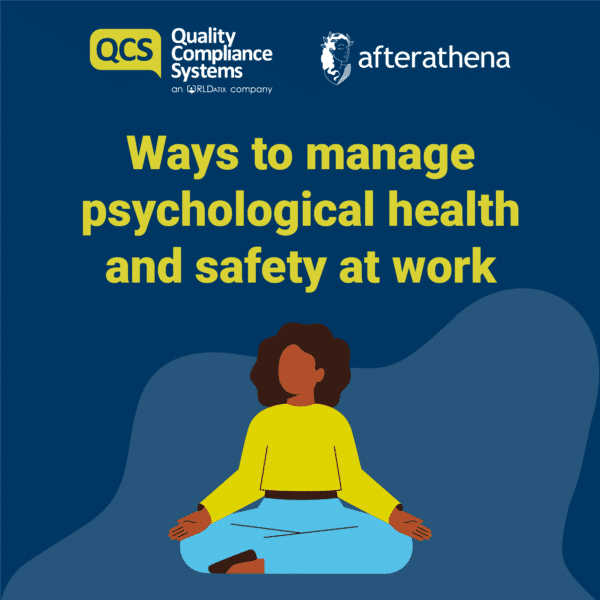You should be aware that employers have a responsibility to protect both the physical and psychosocial health of their staff. More recently, an ISO for managing psychological health and safety at work has been introduced. BS ISO 45003 is the first global guidance standard on managing psychological health and promoting wellbeing at work.
Psychosocial hazards occur or are created by:
- The way in which work is organised – such as poor setting of performance targets
- Social factors at work – for example, relationships with colleagues, clients and others
- Aspects of the work environment, equipment and hazardous tasks – such as faulty equipment or poor management of dangerous tasks
Psychosocial hazards rarely appear on their own. They can arise in combination with one another or in combination with other types of workplaces hazard.
Why manage psychological risk in the workplace?
A person’s working life can have a significant impact on their psychological wellbeing. According to the HSE, in 2021/22:
- There were an estimated 1.8 million workers suffering a work-related illness, with stress, depression and anxiety making up around half of cases
- The figures show an estimated 914,000 cases of work-related stress, depression or anxiety
- An estimated 17 million working days were lost due to this in 2021/22
There needs to be commitment across the whole organisation to manage psychological risk – top management should lead this and work with all staff to help build employee resilience and promote a strong organisational culture.
Supporting mental health within an organisation is crucial and a framework for managing psychological health and safety can help to improve organisational resilience and enhance engagement, performance and productivity.
Leaders must recognise that the management of psychological health and wellbeing needs a holistic approach that incorporates all areas and teams within a business.
Business benefits:
Benefits of committing to the management of such risks include:
- Reduced staff turnover and improved retention
- Improved recruitment and diversity
- Better absence management
- Fewer working days lost
- Fewer accidents
- Improved work quality
- Improved organisational image and reputation
- Better staff understanding and tolerance of others experiencing problems
- Legal compliance
Examples of potential control measures for psychological risk can include:
Allowing breaks to manage fatigue
Increasing workers’ control over the way they do their work
- Flexible timeframes for completion
- Better social support
- Developing competency so that tasks are allocated to those with the right skills, knowledge and experience
- Encouraging early reporting of concerns
- Increasing awareness of psychosocial risks
- Providing instruction in how to respond to foreseeable incidents
- Recognition and reward
- Promoting a workplace free of work-related violence and harassment
- Providing more appropriate equipment
- Using physical barriers to protect staff from the risk of violence
- Protection from physical hazards






